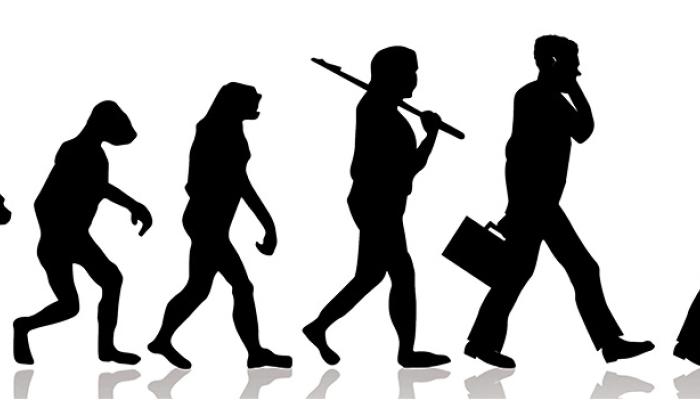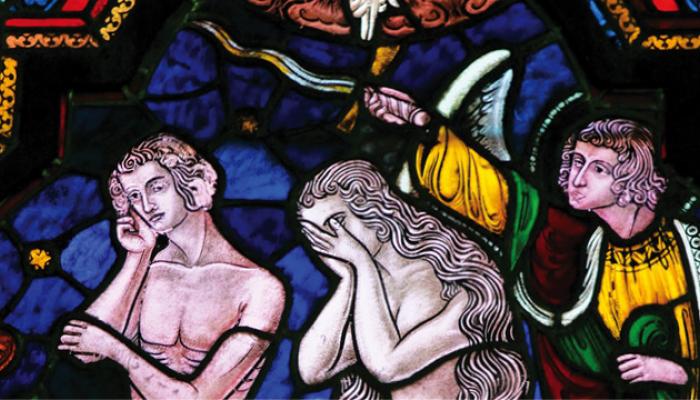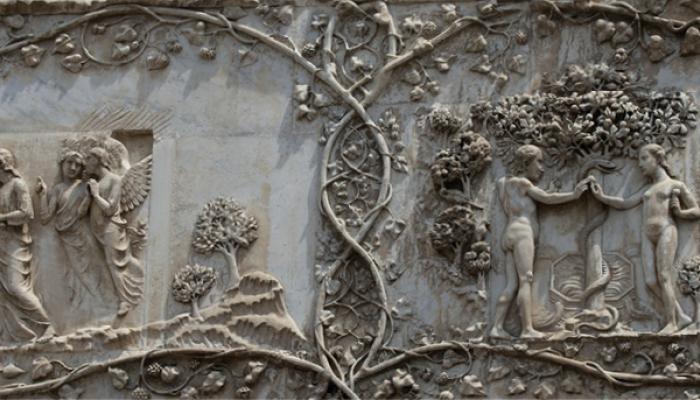
1.5 Spreken geloof en wetenschap elkaar tegen?
Als wij geloven dat God alles gemaakt heeft, dan hoeven we ook niet bang te zijn dat de wetenschap met feiten komt die tegenstrijdig zijn met het geloof. De wetenschap is juist een mooie manier om Gods schepping beter te leren kennen en daardoor meer over God te leren!
Anderzijds schijnt het geloof een licht op het toepassen van de wetenschap, bijvoorbeeld omdat niet alles wat mogelijk is ook moreel goed is. Onderzoek waarbij embryo’s vernietigd worden is een voorbeeld van onethisch gebruik van wetenschappelijke kennis.
What is the importance of affirming “In the beginning God created the heavens and the earth” (Genesis 1:1)?
The significance is that creation is the foundation of all God’s saving plans. It shows forth the almighty and wise love of God, and it is the first step toward the covenant of the one God with his people. It is the beginning of the history of salvation which culminates in Christ; and it is the first answer to our fundamental questions regarding our very origin and destiny. [CCCC 51]
Does science make the Creator superfluous?
No. The sentence “God created the world” is not an outmoded scientific statement. We are dealing here with a theo-logical statement, therefore a statement about the divine meaning (theos = God, logos = meaning) and origin of things.
The creation account is not a scientific model for explaining the beginning of the world. “God created the world” is a theological statement that is concerned with the relation of the world to God. God willed the world; he sustains it and will perfect it. Being created is a lasting quality in things and a fundamental truth about them. [Youcat 41]
What does Sacred Scripture teach about the creation of the visible world?
Through the account of the “six days” of creation Sacred Scripture teaches us the value of the created world and its purpose, namely, to praise God and to serve humanity. Every single thing owes its very existence to God from whom it receives its goodness and perfection, its proper laws and its proper place in the universe. [CCCC 62]
What kind of bond exists between created things?
There exist an interdependence and a hierarchy among creatures as willed by God. At the same time, there is also a unity and solidarity among creatures since all have the same Creator, are loved by him and are ordered to his glory. Respecting the laws inscribed in creation and the relations which derive from the nature of things is, therefore, a principle of wisdom and a foundation for morality. [CCCC 64]
Do natural laws and natural systems come from God also?
Yes. The laws of nature and natural systems are also part of God’s creation.
Man is not a blank slate. He is shaped by the order and the natural laws that God has inscribed in his creation. A Christian does not simply do “whatever he wants”. He knows that he harms himself and damages his environment when he denies natural laws, uses things in ways contrary to their intrinsic order, and tries to be wiser than God, who created them. It demands too much of a person when he tries to design himself from start to finish. [Youcat 45]
Religion cannot be divided from wisdom, nor can wisdom be separated from religion; because it is the same God, who ought to be understood, which is the part of wisdom, and to be honored, which is the part of religion. [Lactantius, The Divine Institutes, Bk. 4, Chap. 4 (ML 6, 456)]





